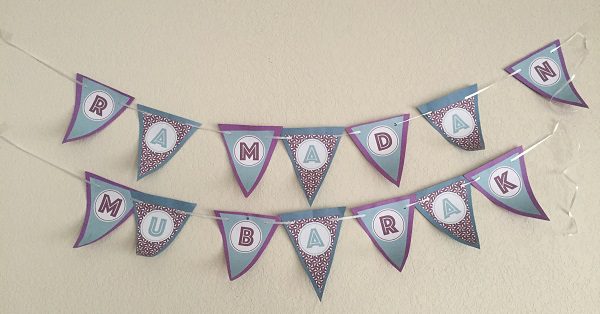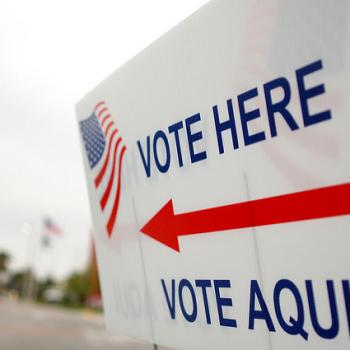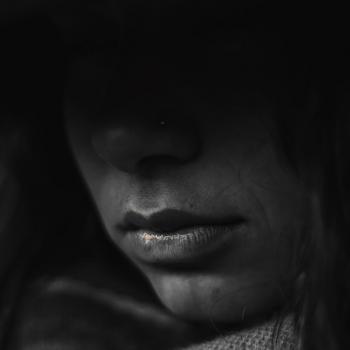
This is Day 21 of Altmuslim’s #30Days30Writers series for Ramadan 2015.
By Zaki Hasan
It was the evening of June 17. The new moon was upon us, bringing in Ramadan right along with it. It was here. Go time. And no, I don’t mean Taraweeh prayer (although that happened too). Rather, I mean what happened later that night, after everyone else in the house had fallen fast asleep.
Unbeknownst to me or our kids, my wife swung into action like the superhero that she is. She’d been planning this for weeks. Decorating. Decorating.
By morning, the entire downstairs of the house was adorned with Ramadan-centric decor and lights. A huge banner marking the month festooned our living room. She’d even set up a very impressive, very elaborate calendar to mark each passing day for the kiddies. It was all as unexpected to me as it was to them.
That said, it was also done wholly without taking into account the inherent destructive abilities of four boys age 8 and under.
By the end of our first fast, that wonderful banner was on the ground, and the string of lights pulled to the floor with it.
And thus we crystallize the wonderful, wonderful challenges of celebrating Ramadan in the Hasan household. These boys are rambunctious on even the best of days, but add in the dog days of summer, plus being home from school, plus two parents already feeling the weight of these long, long days, and I’m sure you can see why forming lasting Ramadan traditions in our house can sometimes feel like uphill sledding.
And yet, for me, a key part of celebrating the month — and celebrating is exactly what it should be — lies in exactly that. The traditions that you form with your family and the memories that come with them — traditions that go beyond fasting and prayer. After all, part of making that uncomfortable transition into adulthood is a noticeable change in how you perceive Ramadan as well as your own relationship with the holy month.
I don’t known when it happens, exactly, but at some point it goes from a month of fun, exotic foods and iftar parties to something you have to balance with all your other real world, grown-up concerns. You go to work. You spend your days hungry. You spend your nights in prayer. You try to enhance your own spiritual growth, oftentimes without fully being able to even measure your own progress in that arena.
None of that is easy, of course. Nor is it meant to be. But certainly for me, a big part of my own childhood experiences with Ramadan was those pleasant memories that I carry with me to this day, and which in turn help make the month more meaningful. And while none of my boys are fasting yet, we want to make Ramadan important to them on a level they can understand.
And so a big part of my adulthood is to try and create new Ramadan traditions with them and for them.
That means trying to make it meaningful as something that’s present in the forefront of their experience. Something that’s experiential rather abstract. That’s no easy feat with these kids, and it’s definitely been the biggest challenge. But also, conversely, it’s also meant the biggest reward when we see it paying off in their appreciation for and understanding of its importance.
It’s three weeks later now, and hey, at least that banner is back up. Whoops, never mind, on the ground again.
Zaki Hasan is a professor of communication and media studies. A media scholar and critic for more than 15 years, Zaki is a member of the San Francisco Film Critics Circle, co-host of the MovieFilm Podcast, co-author of Quirk Books’ Geek Wisdom: The Sacred Teachings of Nerd Culture, and he has appeared as a panelist on Al Jazeera America’s The Streamand HuffPost Live. Since 2004, his blog Zaki’s Corner has been a one-stop forum for musings on news, media, politics and pop culture.











